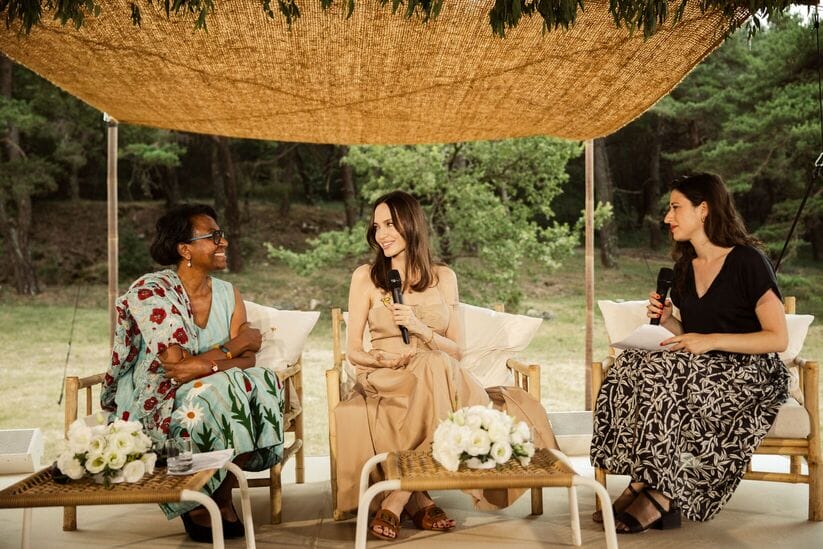American actress, director and humanitarian, Angelina Jolie, was recently appointed as ‘godmother’ for the Women For Bees charity program, a joint venture between renowned beauty brand, Guerlain and UNESCO. The program combines an international network of women beekeepers who can share their scientific knowledge and local expertise on the crucial role bees and pollination play in maintaining the planet’s food security.

Courtesy of Guerlain
Angelina has been fighting for refugee rights for over 20 years and she is well-versed in charity work involving issues related to conservation and the impact of environmental destruction on human security and the local communities. She has also funded schools for children in Afghanistan and Kenya, and believes education is important in developing communities.
“We think of a future without bees as science fiction, but bee populations are declining globally, due to human activity. The implications for our food supply, for biodiversity, if we continue on this path, are apocalyptic. As I started to work with Guerlain we spoke often about bees, and then we really started to talk about what could we do to improve the situation – what could we do for both the bees and also for women. This global sisterhood that is forming with this “Women for Bees” programme is very exciting,” shares the actress.
REPOPULATING 125 MILLION BEES
The Women for Bees program was established earlier this year and sees a month-long training led by experts from the French Observatory of Apidology (OFA). As new entrepreneurs, these women will become members of a worldwide community of women beekeepers, who along with their stocks of bees will strengthen local biodiversity and pass on their own knowledge.
Angelina Jolie’s involvement in this program is apt as the ‘Maleficient’ actress has consistently promoted charity work on her platform.

What’s interesting about this program is that it already includes women beekeepers from Slovenia, China, Russia and Ethiopia and will be expanded over the next 5 years to 2025.
Between now and 2025, 2,500 hives will have been created within 25 UNESCO biosphere reserves, in the hopes that the programme will contribute to the repopulation of 125 million bees.



